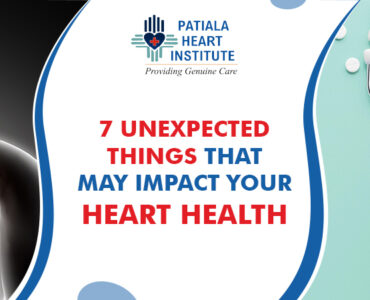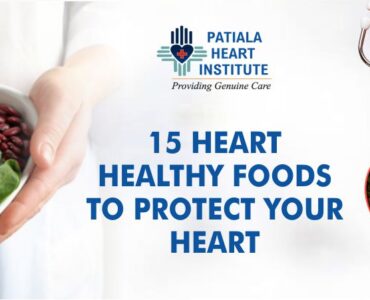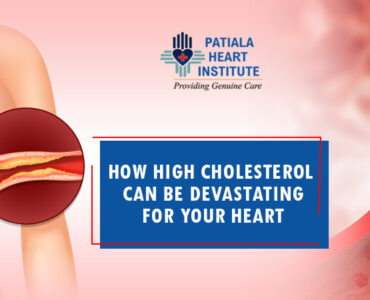Preventive heart check-ups hold immense significance in maintaining cardiovascular health. Heart disease is a leading cause of death globally, and many risk factors are manageable with early detection. Regular check-ups can help identify potential issues, allowing for timely intervention and lifestyle changes to reduce the risk of heart disease. These check-ups are not only for individuals with known risk factors but also for anyone interested in proactively safeguarding their heart health.
The role of early detection in heart health:
Early detection plays a pivotal role in preserving heart health. Heart diseases often develop silently, with no noticeable symptoms until they have progressed significantly. Regular check-ups can detect risk factors such as high blood pressure, elevated cholesterol levels, or abnormal heart rhythms before they lead to more severe conditions like heart attacks or strokes. Early intervention through lifestyle modifications, medication, or medical procedures can significantly improve outcomes and quality of life for individuals at risk.
This blog aims to guide individuals on the importance of preventive heart check-ups as a proactive approach to heart health. By following this blog, individuals can understand how to prioritize their heart health, make informed decisions, and take steps to prevent heart disease effectively.
Understanding Heart Disease Risk Factors:
Identifying common risk factors:
- Age and gender: Advancing age is a significant risk factor for heart disease. As individuals grow older, their risk of developing heart-related issues increases. Gender plays a role, with men generally at higher risk for heart disease than premenopausal women. However, postmenopausal women’s risk tends to equalize with that of men.
- Family history: A family history of heart disease can significantly increase an individual’s risk. If close relatives, such as parents or siblings, have had heart problems at an early age, it may indicate a genetic predisposition to cardiovascular issues.
- Lifestyle factors (diet, exercise, smoking): Lifestyle choices are crucial to heart health. Poor dietary habits, lack of regular physical activity, and smoking are known risk factors. Diets high in saturated fats, cholesterol, and sodium can lead to high blood pressure and cholesterol levels, while physical inactivity contributes to obesity and a sedentary lifestyle. Smoking damages blood vessels and increases the risk of atherosclerosis.
- Medical conditions (hypertension, diabetes): Conditions such as hypertension (high blood pressure) and diabetes are significant risk factors for heart disease. High blood pressure puts added strain on the heart and blood vessels, while diabetes can lead to increased levels of glucose in the bloodstream, damaging arteries over time.
Assessing personal risk:
Assessing personal risk involves evaluating one’s own health and lifestyle choices in the context of the common risk factors. This assessment can include:
- Regular blood pressure and cholesterol checks to monitor key indicators.
- Reviewing family medical history to identify any genetic predisposition.
- Assessing dietary habits and physical activity levels.
- Evaluating smoking habits and seeking support to quit if necessary.
- Monitoring the management of medical conditions like hypertension and diabetes through regular check-ups and treatment adherence.
- Individuals can work with healthcare providers to assess their personal risk factors and create a customized plan to mitigate these risks, emphasizing lifestyle changes and preventive measures to maintain a healthy heart.
Recommended Preventive Heart Check-Up Tests:
Basic screening tests:
- Blood pressure measurement: Regular monitoring of blood pressure is a fundamental basic screening test. Elevated blood pressure is a common risk factor for heart disease, and early detection allows for timely intervention through lifestyle modifications or medication to maintain healthy blood pressure levels.
- Cholesterol levels: Measuring cholesterol levels, including LDL (low-density lipoprotein) and HDL (high-density lipoprotein) cholesterol, is essential. High levels of LDL cholesterol are associated with an increased risk of atherosclerosis and heart disease, while higher HDL cholesterol levels are protective. Monitoring cholesterol levels helps assess cardiovascular risk and guide dietary and medication interventions.
Advanced diagnostic tests:
- Electrocardiogram (ECG or EKG): An ECG records the heart’s electrical activity. It can detect abnormal heart rhythms, signs of previous heart attacks, and other cardiac abnormalities. ECGs are often included in routine check-ups, especially for those with known risk factors.
- Stress test (exercise or pharmacological): Stress tests evaluate how the heart responds to physical exertion or medications that simulate exercise. They can uncover hidden coronary artery disease and assess exercise tolerance. Stress tests are particularly useful for individuals with symptoms like chest pain or shortness of breath during physical activity.
- Echocardiogram: An echocardiogram is an ultrasound of the heart that provides detailed images of its structure and function. It helps in diagnosing conditions like heart valve problems, congenital heart defects, and heart muscle abnormalities.
- Cardiac CT scan: A cardiac CT scan is a non-invasive imaging test that can visualize the coronary arteries and detect coronary artery disease or blockages. It is particularly valuable when assessing the presence and severity of coronary artery disease.
- Coronary angiography: Coronary angiography is an invasive procedure where a contrast dye is injected into the coronary arteries, and X-ray images are taken. It is considered the gold standard for diagnosing coronary artery disease and assessing the extent of blockages.
Emerging technologies and genetic testing:
Emerging technologies and genetic testing are continually evolving in the field of heart disease prevention. Genetic testing can identify specific genetic markers associated with heart disease risk, allowing for personalized risk assessment and prevention strategies. Additionally, advancements in non-invasive imaging techniques and biomarker testing are improving the accuracy and accessibility of heart disease diagnosis and risk assessment.
Frequency and Timing of Check-Ups:
Age-specific recommendations:
Preventive heart check-up recommendations can vary by age due to changing risk factors. Here are some age-specific guidelines:
- 20s-30s: Healthy individuals in this age range should have a baseline heart check-up to assess blood pressure, cholesterol, and lifestyle factors. Further check-ups are typically not required unless specific risk factors are present.
- 40s: By their 40s, individuals should consider more comprehensive heart check-ups, including stress tests and additional screenings if risk factors like family history or high blood pressure exist.
- 50s and beyond: Regular heart check-ups become increasingly important as individuals age. They should include ECGs, echocardiograms, and more frequent cholesterol monitoring. For those with known risk factors, yearly check-ups may be recommended.
Regularity of check-ups:
The regularity of heart check-ups depends on individual risk factors, age, and prior test results. Generally, individuals with high-risk factors such as hypertension, diabetes, obesity, or a family history of heart disease should have more frequent check-ups, often annually. As their healthcare provider advises, those with lower risk factors may have check-ups every two to five years. However, consulting a healthcare professional is crucial to establishing a personalized schedule.
Importance of follow-up appointments:
Follow-up appointments are essential to track changes in heart health over time and ensure effective preventive measures. They allow healthcare providers to adjust treatment plans, assess the impact of lifestyle changes, and monitor the progression of any existing conditions. Consistent follow-up appointments also promote better patient-doctor communication, enabling individuals to ask questions and receive guidance on maintaining a healthy heart.
Lifestyle Modifications for Heart Health:
Diet and nutrition:
A heart-healthy diet is crucial for reducing the risk of heart disease. Focus on:
- Balanced meals: Incorporate a variety of fruits, vegetables, whole grains, lean proteins, and healthy fats.
- Limiting salt: Reduce sodium intake to control blood pressure.
- Managing portions: Be mindful of portion sizes to avoid overeating.
- Reducing saturated and trans fats: Limit consumption of fried foods, processed snacks, and fatty cuts of meat.
- Monitoring cholesterol: Choose foods that help lower LDL cholesterol, such as oats, nuts, and fiber-rich foods.
Exercise and physical activity:
Regular physical activity is essential for heart health. Aim for:
- Aerobic exercise: Engage in activities like brisk walking, jogging, or cycling for at least 150 minutes per week.
- Strength training: Incorporate resistance exercises to build muscle and improve metabolism.
- Consistency: Make exercise a routine part of your lifestyle to maintain cardiovascular fitness.
Smoking cessation:
Quitting smoking is one of the most significant steps for heart health. Benefits include:
- Lowering blood pressure and heart rate: Smoking cessation reduces the strain on the heart.
- Improved lung function: Better lung capacity contributes to increased oxygen supply to the heart.
- Reduced risk of blood clots: Quitting smoking decreases the likelihood of blood clot formation, reducing the risk of heart attacks and strokes.
Stress management:
Chronic stress can negatively impact heart health. Strategies for managing stress include:
- Relaxation techniques: Practice meditation, deep breathing, or yoga to reduce stress.
- Physical activity: Exercise helps release stress-reducing hormones.
- Social support: Maintain strong social connections and seek support from friends and family.
Weight management:
Maintaining a healthy weight is essential for heart health. Strategies include:
- Balanced calorie intake: Consume calories in alignment with energy expenditure.
- Regular physical activity: Exercise helps burn calories and maintain a healthy weight.
- Portion control: Be mindful of portion sizes to prevent overeating.
- Adequate sleep: Lack of sleep can disrupt metabolism and contribute to weight gain.
Medications and Treatment Options:
Medications for heart disease prevention:
Medications play a crucial role in preventing and managing heart disease. Some common categories of heart medications include:
- Statins: These drugs lower cholesterol levels in the blood, reducing the risk of atherosclerosis and heart attacks.
- Blood pressure medications: Medications like ACE inhibitors, beta-blockers, and diuretics help control hypertension, reducing strain on the heart.
- Antiplatelet agents: Drugs like aspirin can prevent blood clots and reduce the risk of heart attacks and strokes.
- Antiarrhythmics: These medications help manage irregular heart rhythms (arrhythmias).
- Anticoagulants: Blood-thinning medications can prevent or treat blood clots in conditions like atrial fibrillation or deep vein thrombosis.
- Diabetes medications: For individuals with diabetes, controlling blood sugar levels is essential to prevent heart disease complications.
Interventional procedures and surgeries:
When lifestyle changes and medications are insufficient, interventional procedures and surgeries become necessary. Some common options include:
- Angioplasty and stent placement: In cases of coronary artery disease, a procedure called angioplasty can be performed to open blocked arteries, often followed by the placement of a stent to keep the artery open.
- Coronary artery bypass grafting (CABG): CABG surgery involves redirecting blood flow around blocked coronary arteries using grafts, usually taken from other blood vessels in the body.
- Heart valve repair or replacement: Surgery may be needed to repair or replace damaged heart valves, improving heart function.
- Cardiac pacemakers or defibrillators are implanted to regulate heart rhythms and treat arrhythmias.
- Heart transplantation: In severe cases of heart failure, a heart transplant may be the only option to replace a failing heart with a healthy donor heart.
Lifestyle interventions as a first-line approach:
Lifestyle interventions are often the initial approach to preventing and managing heart disease. They include:
- Diet and nutrition: Adopting a heart-healthy diet low in saturated fats, sodium, and added sugars.
- Exercise and physical activity: Incorporating regular physical activity into daily routines to improve cardiovascular fitness.
- Smoking cessation: Quitting smoking to reduce the risk of heart disease.
- Stress management: Utilizing stress-reduction techniques to maintain overall heart health.
- Weight management: Achieving and maintaining a healthy weight through diet and exercise.
Conclusion
Preventive heart check-ups in Patiala are not merely an option but a vital cornerstone of cardiovascular health. Regular check-ups provide the opportunity to identify risk factors and detect potential issues before they escalate into severe heart conditions. Individuals can proactively safeguard their heart health by prioritizing preventive heart check-ups, leading to longer, healthier lives. For more information, visit Patiala Heart Institute.
When Should I Get My Heart Checked?
Regular heart check-ups are recommended based on age, risk factors, and medical history. Generally, start in your 20s-30s and increase frequency with age or if you have risk factors like family history or hypertension.
Is My Heart Ok If The Ecg Is Normal?
While a normal ECG is a positive sign, it doesn't guarantee overall heart health. Other tests and risk factors should be considered, and regular check-ups are important for a comprehensive assessment.
What Are The First Signs Of A Weak Heart?
Early signs of heart issues may include fatigue, shortness of breath, swollen ankles or legs, and irregular heartbeats. However, these symptoms can vary, so it's crucial to seek medical evaluation if you have concerns.







